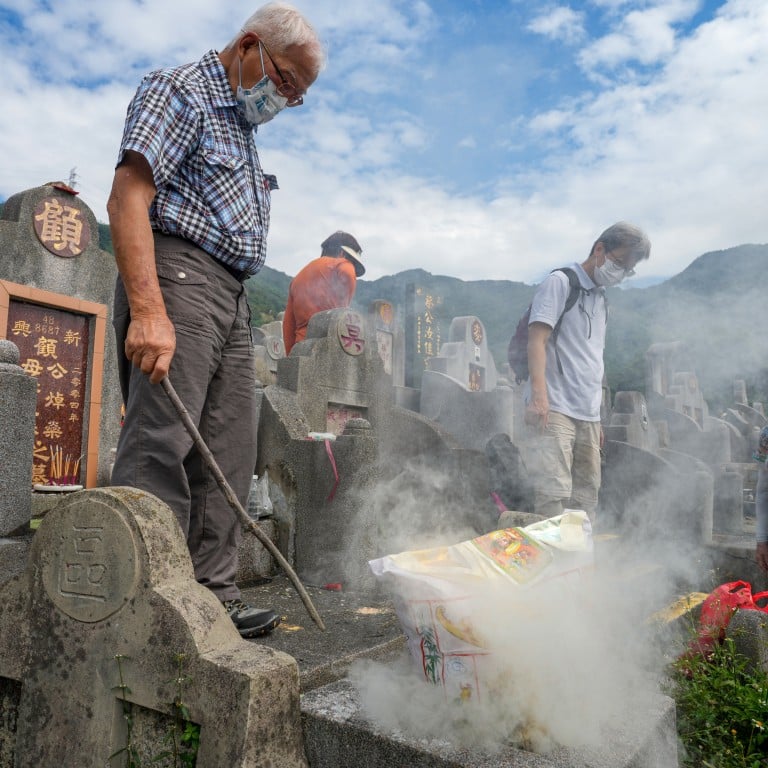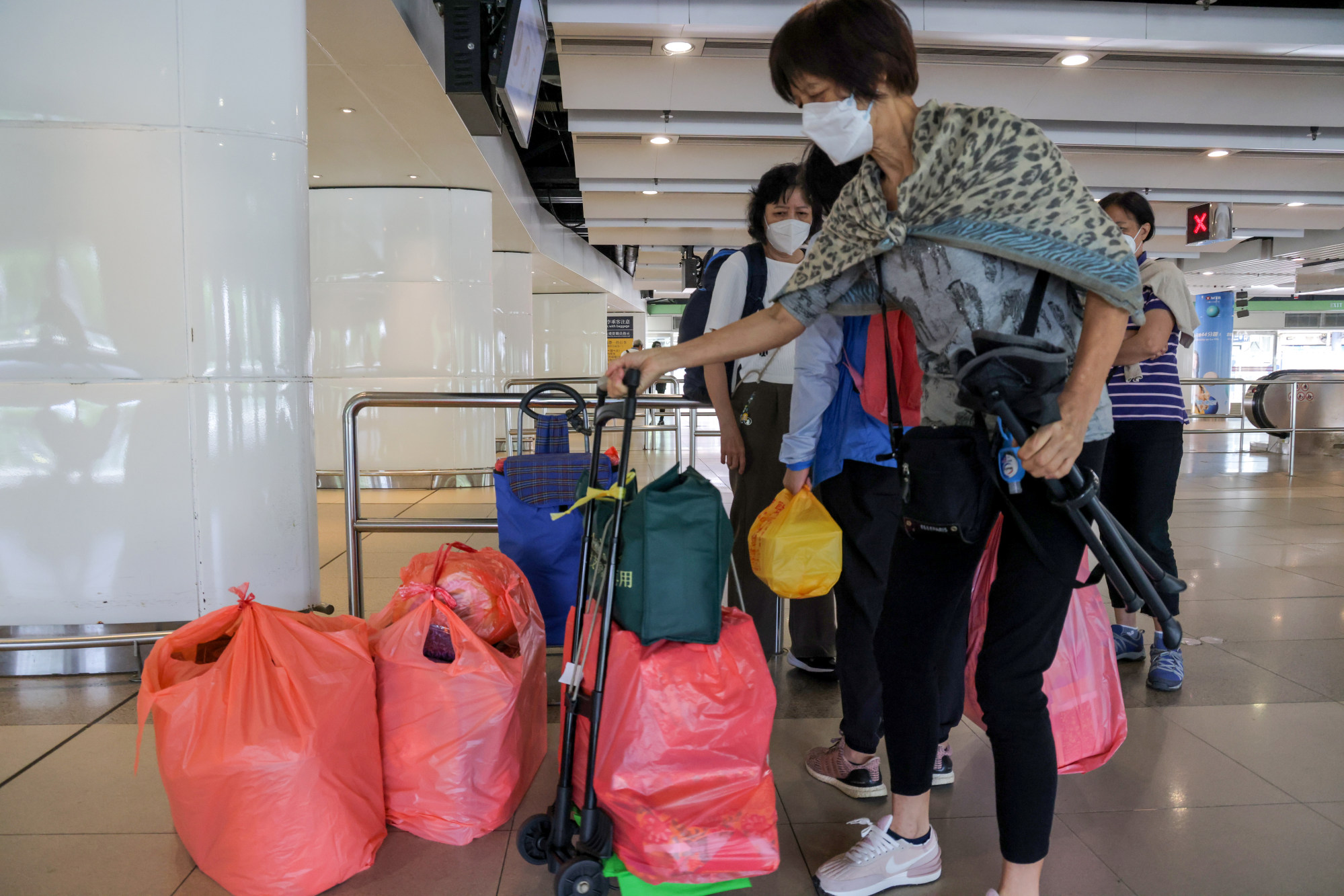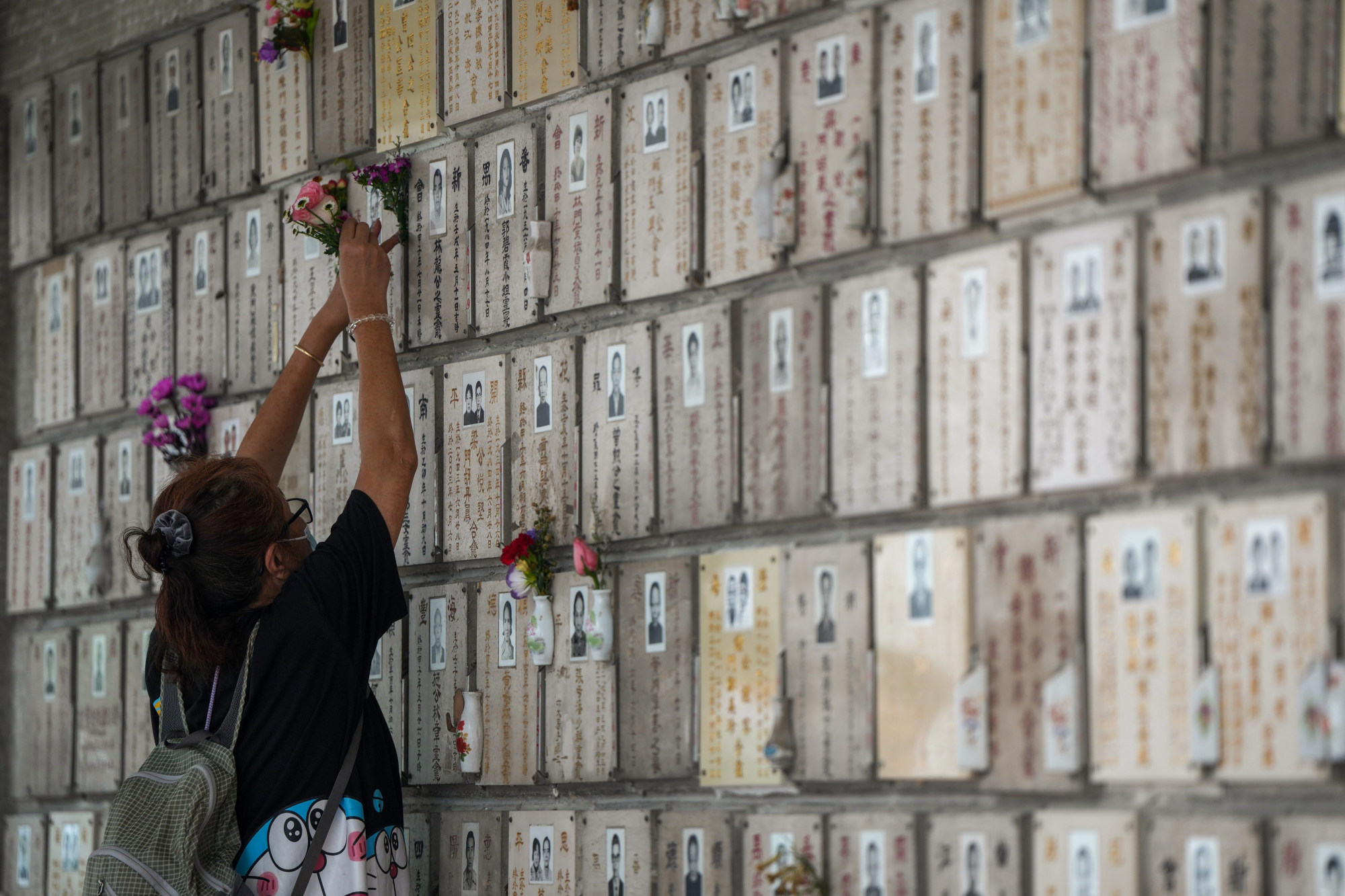
Chung Yeung Festival: thousands of Hongkongers flock to mainland China to sweep ancestors’ tombs as border reopening restores tradition for many families
- Residents arrive at Lo Wu checkpoint as early as 9am to cross border into Shenzhen, with many seen carrying flowers and offerings
- ‘It’s our first time in three years,’ says one resident visiting cemetery in Shenzhen to sweep the graves of her parents
Scores of Hongkongers flocked to mainland China to sweep the tombs of their ancestors and loved ones on Monday for the first Chung Yeung Festival since the full reopening of the border, with many expressing joy at being able to take part in the tradition again.
Thousands of residents arrived at the Lo Wu checkpoint as early as 9am to cross the border into Shenzhen, with an average 10-minute wait on the Hong Kong side.
Visitors in groups of two to 12 were seen carrying flowers and offerings for their deceased loved ones and ancestors.

The festival, observed on the ninth day of the ninth lunar month, is a traditional Chinese holiday where individuals visit the graves of their ancestors and relatives to tidy them up and make offerings as a gesture of filial piety.
This year’s festival is the first since the lifting of major pandemic travel restrictions.
Fandy Hui, a 55-year-old clerk, said she had come to Shenzhen with her husband and sister to clean the tombs of her mother and father at Dapeng Wan Cemetery.
“It’s our first time in three years,” Hui said. “Our family tradition is going to Shenzhen once a year to visit their graves during the Chung Yeung Festival. We were not able to do it over the past years because of Covid restrictions.”
She said they had spent about HK$500 (US$64) on offerings this year and would return to Hong Kong midday after tending to her parents’ tombs.
Chung Yeung Festival in Hong Kong – the rules and the taboos
Andy Zheng, 30, was also visiting the graves of his loved ones for the first time in three years.
“My family and I didn’t go back during the Ching Ming Festival because it was not that convenient for us at that time,” the bank employee said, referring to another tomb-sweeping festival in April.
“I actually go to Shenzhen quite often aside from the festival, but it’s still nice to have this tradition restored.”
Zheng, who came with his parents and aunt, said his family had spent about HK$2,000 on offerings.
Emmie Chan, a retiree in her sixties, said she was travelling to Shenzhen with her five siblings to sweep the tombs of her father and grandmother.
She said each of them had spent about HK$1,000 on the offerings.
Ching Ming Festival – tomb-sweeping day: what it means and how it’s marked
“We went there during the Ching Ming Festival earlier this year too. We usually do that twice a year, but everything was suspended during the pandemic,” she said.
“We’re really happy that the border has been reopened and we’re finally able to express our thoughts to our loved ones in person.”
Hong Kong recorded a total of 813,906 arrivals and 1.15 million departures across October 21 and 22, with most travellers entering and leaving the city through the seven land border crossings.
The Lo Wu crossing was the busiest during the two-day period, with more than 216,000 people passing through it to head to Shenzhen.
In Hong Kong, tomb sweepers carried joss paper for their loved ones laid to rest in the Cape Collinson Chinese Cemetery in Chai Wan.

This year, residents were spared from climbing steep stairs after the opening of a new escalator on Thursday, bringing people from San Ha Street to the top of the cemetery, which took about six minutes.
A retiree in her 70s, who only gave the surname So, came to the cemetery with her son to visit the grave of her late husband. She said the new escalator had saved her from exhaustion.
“Previously, I had to stop every two floors and that hurt my knee,” she said, adding the escalator allowed elderly people to reach the top easily.
A woman, who only gave the name Kary, also said she used to not like coming to the site because climbing the stairs had made her “sweat a lot”, but the escalator had made the journey to the entrance easier.
Separately, Chief Executive John Lee Ka-chiu led senior officials – including Chief Justice Andrew Cheung Kui-nung, Legislative Council president Andrew Leung Kwan-yuen and Executive Council convenor Regina Ip Lau Suk-yee – in commemorating those who lost their lives defending Hong Kong between 1941 and 1945 at an event at the Memorial Garden of City Hall on Monday morning.
Additional reporting by Lo Hoi-ying


